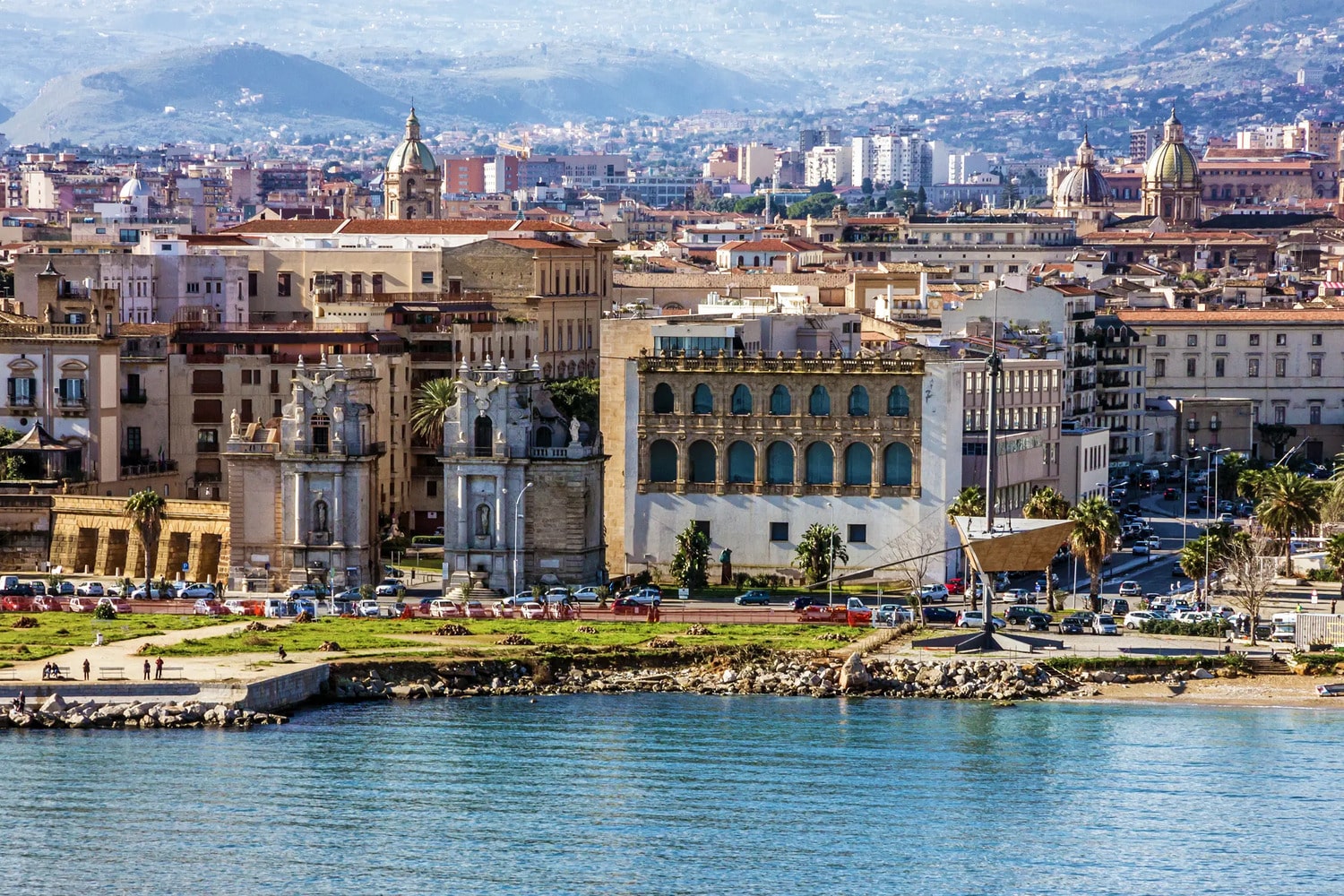Palermo is a city that can surprise even the most experienced travelers with its unique character, rich history, and vibrant atmosphere. The capital of Sicily blends influences from many civilizations, which can be seen in its architecture, cuisine, and authentic Mediterranean spirit. Every street in Palermo is full of legends, and the cultural mosaic impresses with its diversity and unexpected contrasts. If you want to discover fascinating and little-known facts about Palermo, this selection will be a real source of new discoveries for you.
- Palermo is one of the oldest cities in Europe, with a history that spans more than 2,700 years. The Phoenicians, Greeks, Romans, Byzantines, Arabs, Normans, and Spaniards all left their marks here, and each era gave the city unique monuments and traditions.
- The name of the city comes from an ancient Greek word meaning “full port.” Palermo’s location has made it an important commercial and maritime center since ancient times.
- The city’s markets are a true hallmark, with Ballarò, Vucciria, and Capo being the most famous. These markets have operated since medieval times and have retained an oriental atmosphere, offering fresh seafood, exotic spices, cheeses, sweets, and fruits.
- In Palermo, you can see unique examples of Norman, Arab, and Byzantine architecture that blend harmoniously in churches, palaces, and other historic buildings. The Palermo Cathedral and the Norman Palace with the Palatine Chapel hold special significance.
- Palermo is a real open-air museum. Ancient fountains, arches, streets paved with mosaics, as well as remains of Roman and Arab fortifications, have all been preserved here.
- The city is famous for its catacombs, which hold over 8,000 mummified bodies. The Capuchin Catacombs are one of the most unusual places in Europe and attract tourists from all over the world.
- Palermo is home to more than 650,000 people, yet the city remains very welcoming and lively. Each district has its own character and peculiarities, and the atmosphere often resembles a stage with vibrant emotions.
- The city’s main square, Piazza Pretoria, is adorned with an impressive fountain featuring numerous statues, sometimes called the Fountain of Shame because of the boldness of its figures.
- Palermo is often called the city of gardens, as it has many parks and botanical gardens. The Palermo Botanical Garden stands out as one of the oldest and most famous in Europe.
- The cuisine of Palermo is a story of its own. The local gastronomy combines Arab, Italian, Spanish, and Greek influences: you can try arancini (rice balls), panelle, caponata, pasta with sardines, as well as famous ice cream and granita.
- The Teatro Massimo in Palermo is the largest opera house in Italy and one of the largest in Europe. Its architecture and acoustics are impressive, and world opera stars regularly perform on its stage.
- The city frequently hosts vibrant festivals, including the Festival of Saint Rosalia, which lasts several days and features costume parades, music, fireworks, and street celebrations.
- The surroundings of Palermo offer beautiful beaches with turquoise waters, including Mondello, considered one of the most scenic beaches in Sicily. Here, you can relax on the sand, go windsurfing, or enjoy fresh fish at seaside restaurants.
- Palermo has one of the oldest university traditions in Italy—the University of Palermo was founded in 1806 and today is an important scientific and cultural center for the region.
- The city is known for its unique mix of religious sites: you can find Christian churches, synagogues, and even remains of mosques, reflecting Palermo’s multicultural history.
- Palermo is one of the few Italian cities where the Arab “souk” market has survived, whose atmosphere transports visitors back to the Middle Ages.
- Many famous films have been shot in the city, including scenes from the iconic “Godfather.” The narrow streets and palaces often serve as sets for filmmakers from all over the world.
- Palermo is also a city of contrasts. Luxurious churches and palaces stand next to humble neighborhoods, where locals preserve ancient traditions, cook family meals, and welcome guests with warmth.
- The city has a well-developed public transport system, including buses, trams, and even a metro, making it easy for tourists and residents to get around.
- Palermo is renowned for its lively nightlife: there are many bars, restaurants, and small cafés filled with laughter and music until the early hours.
These fascinating facts about Palermo show that the city deserves the attention of anyone interested in history, culture, and authenticity. Its streets preserve the legends of many peoples, and modern life is closely intertwined with ancient traditions. There are still many incredible facts about Palermo waiting to be discovered, and every trip here can become a unique adventure for those who want to experience the true spirit of Sicily.





